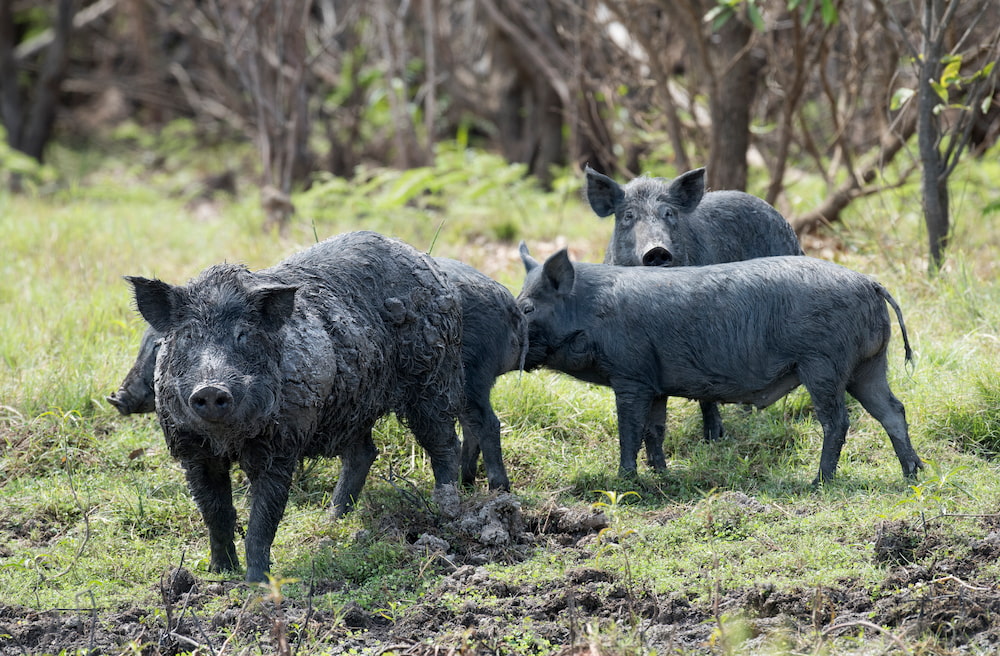Many parks and reserves across the ACT will be periodically closed throughout May and June as the ACT Government conducts its annual thermal-assisted aerial control program targeting vertebrate pests.
From Monday 13 May to Tuesday 11 June, areas of Namadgi National Park, Lower Cotter Catchment, the Murrumbidgee River Corridor, Molonglo River Reserve, Tidbinbilla Nature Reserve and Googong Foreshores, as well as adjacent forestry land, will be closed. Not all areas will be closed at the same time.
Popular recreation areas will remain open, including Casuarina Sands, Cotter and Blue Range Campgrounds, Kambah Pool, and Pine Island. Check the Parks ACT website before visiting parks and reserves.
The aerial control program is undertaken each year to remove pest species from important conservation areas across the ACT, including water catchments, Stephen Alegria, executive branch manager, ACT Parks and Conservation Service, said.
“Pest species such as feral deer and pigs can cause major damage to our native ecosystems and increase the risk to threatened and endangered species,” Mr Alegria said. “These pests compete with native species for habitat and resources, they graze and trample habitats, and negatively impact water quality in our catchments.
“This program has been carried out across most ACT conservation areas each year since 2021 to protect the environment from the extensive damage that can be caused by invasive vertebrate pests.
“The government received additional funding this year through the Better Biosecurity initiative, so this will be the largest pest animal program implemented in the ACT. The additional funding will allow the program to expand to operate on many rural properties adjacent to the conservation areas to help farmers manage these pests.
“Aerial shooting is the most effective and humane method of control available for large feral animals. It allows larger areas to be covered across challenging terrain that would otherwise be difficult to access. Thermal imaging cameras are used to detect and target animals, increasing effectiveness and animal welfare outcomes.”
Safety precautions will be in place, including buffer zones, signage, and sweeps before all operations. Aircraft may operate within the closed areas.
The ACT Government’s approach to invasive species management prioritises animal welfare, Mr Alegria said. All control activities are undertaken in accordance with best practice and humane control of feral animals.
In 2023, 517 feral pigs, 356 feral deer and 57 feral goats were killed in Namadgi National Park, the Murrumbidgee River Corridor, Molonglo River Reserve, and Googong.
Closure dates
- Namadgi National Park East: 13 – 19 May
- Namadgi National Park West: 14 – 24 May
- Namadgi National Park North: 22 – 26 May
- Lower Cotter Catchment: 22 – 26 May
- Stony Creek Nature Reserve: 25 – 31 May
- Bullen Range Nature Reserve: 25 May – 7 June
- Gigerline Nature Reserve: 25 May – 7 June
- Rob Roy Range Nature Reserve: 25 May – 7 June
- Tidbinbilla Nature Reserve: 3 – 4 June
- Swamp Creek Nature Reserve: 3 – 7 June
- Sherwood Special Purpose Reserve: 3 – 7 June
- Molonglo River Reserve: 3 – 7 June
- Googong Foreshores: 5 – 11 June
The Australian Alps walking track will be closed from the Mt Tennant summit to the NSW border in Murrays Gap from 14 to 25 May. Parts of Kosciusko National Park in NSW are also closed, including large sections of the walking track, until 4 October.
The Murrumbidgee Discovery trail will be closed from Pine Island to Casuarina Sands. This includes a section of the Centenary trail between Kambah Pool and Pine Island from 25 May to 7 June.
More information about vertebrate pest management is available on the ACT Environment website.
More information about park and reserves closures in the ACT is available on the ACT Parks website.



